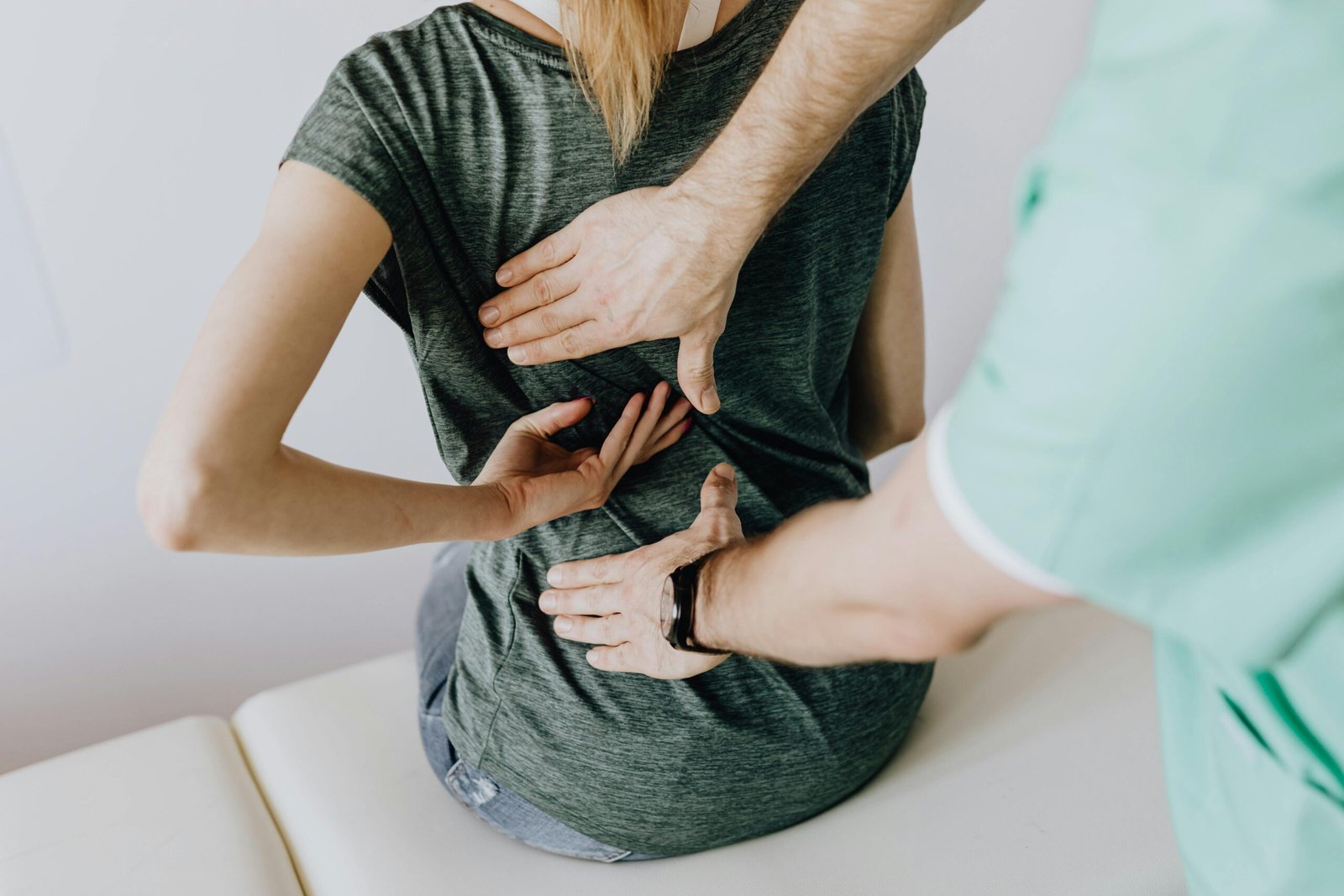So, you just found out you’re expecting—congratulations! But instead of glowing skin and a newfound love for pickles, you’re dealing with something less exciting: lower back pain in pregnancy first trimester. If you’re wondering, “Wait, isn’t back pain a third-trimester thing?” you’re not alone. The truth is, lower back pain in pregnancy first trimester is incredibly common, and there are good reasons why it’s happening.
Why Does Lower Back Pain in Pregnancy First Trimester Happen?

Pregnancy is a wild ride, and your body is already working overtime in the first trimester to prepare for the little human growing inside you. Here’s why lower back pain in pregnancy first trimester is a thing:
Hormonal Changes
Your body is pumping out pregnancy hormones like relaxin, which helps loosen ligaments and joints in preparation for birth. Sounds great, right? Except that loosened ligaments can also mean less stability in your lower back, leading to aches and pains.
The Uterus is Already Expanding
Even though your baby is still tiny, your uterus is growing and putting pressure on surrounding muscles and ligaments. This change can cause discomfort, especially in the lower back area.
Changes in Posture
As your pregnancy progresses, your center of gravity starts shifting—even in the early weeks. You may find yourself unconsciously adjusting how you stand and move, which can strain your lower back muscles.
Stress and Fatigue
Pregnancy is exhausting, and fatigue can make every ache and pain feel even worse. Plus, stress itself can contribute to muscle tension, including in your lower back.
How to Relieve Lower Back Pain in Pregnancy First Trimester
While lower back pain in pregnancy first trimester is normal, that doesn’t mean you have to suffer through it. Here are some simple ways to ease the discomfort:
Gentle Exercise
Moving your body might be the last thing you want to do, but gentle exercises like walking, prenatal yoga, and pelvic tilts can help strengthen your back and core muscles, providing much-needed support.
Proper Posture
Now’s the time to be mindful of how you’re sitting and standing. Try to keep your shoulders back and avoid slouching. If you work at a desk, a supportive chair or a small pillow behind your lower back can make a big difference.
Heat and Cold Therapy
A warm compress or a heating pad on your lower back can be super soothing. Just don’t go overboard with the heat. Some women also find that a cold pack helps reduce inflammation.
Supportive Footwear
Your favorite heels might need to take a backseat for a while. Wearing supportive shoes can help with overall posture and reduce the strain on your lower back.
Prenatal Massage
A gentle prenatal massage (from a trained professional) can do wonders for lower back pain in pregnancy first trimester. Just make sure to get the green light from your doctor first.
Sleeping Position Adjustments
If you’re a back sleeper, it might be time to start training yourself to sleep on your side. A pregnancy pillow or even a regular pillow between your knees can help relieve pressure on your lower back.
Staying Hydrated
Dehydration can make muscle cramps worse, so keep that water bottle handy and sip throughout the day.
Managing Stress
Since stress can contribute to muscle tension, activities like deep breathing, meditation, or simply taking some time to relax can make a difference.
When Should You Worry About Lower Back Pain in Pregnancy First Trimester?
Most of the time, lower back pain in pregnancy first trimester is just one of those things that comes with the territory. However, in some cases, it can signal something more serious. Call your doctor if you experience:
- Severe pain that doesn’t improve with rest
- Pain accompanied by fever or chills
- Pain that spreads to your abdomen or is accompanied by cramping
- Any bleeding or unusual discharge
- Pain that feels like contractions or gets worse over time
While it’s probably nothing serious, it’s always better to check in with your doctor for peace of mind.
Hang in There, Mama!

Lower back pain in pregnancy first trimester might not be the most fun part of your journey, but the good news is that it’s usually temporary and manageable. Your body is working hard to grow your baby, and some aches and pains are just part of the deal. With a little self-care, some simple adjustments, and (if needed) a chat with your doctor, you’ll be feeling better in no time. So go easy on yourself, listen to your body, and know that this is just one small chapter in your amazing pregnancy story!
Frequently Asked Questions on Lower Back Pain in Pregnancy First Trimester
1. Why does my lower back hurt so early in pregnancy?
Oh, welcome to the club! Lower back pain in the first trimester might feel like a surprise since your belly hasn’t popped yet, but your body is already working overtime. The main culprit? Hormones! Specifically, relaxin and progesterone. These two are busy loosening your joints and ligaments, especially around your pelvis, getting you all prepped for labor—except you’ve got months to go! That extra looseness can make your spine feel wobbly, leading to discomfort.
Then there’s the posture shift. Even though your belly isn’t huge yet, you might be unconsciously adjusting how you stand or walk, which can put more pressure on your lower back. Oh, and let’s not forget the fatigue. Growing a human is no joke. If you’re extra tired, you may be slouching more, which can make the pain worse.
2. Can lower back pain be a sign of miscarriage?
This is a common fear, and it makes sense to be worried. While lower back pain can be a symptom of miscarriage, it’s not always a bad sign. Many pregnant people experience back pain in the first trimester due to normal changes in their body. However, if the pain is severe, comes in waves, or is paired with heavy bleeding or cramping, it’s worth checking in with your doctor.
The good news? Most early pregnancy back pain is totally normal. Your body is just stretching and adjusting, and while it might be annoying (okay, super annoying), it’s rarely a cause for alarm. But if your gut tells you something feels off, trust it and get checked out. Peace of mind is priceless.
3. How can I relieve lower back pain without medication?
Your best bet? Move, stretch, and support! Sitting around might seem tempting, but too much rest can actually make things worse. Try some gentle movement, like prenatal yoga or walking. Stretching your lower back, hamstrings, and hips can help, too—think slow, easy stretches, nothing intense.
A pregnancy pillow can be a game-changer, even early on. Tucking one between your knees when you sleep can keep your spine aligned. And if you’re sitting a lot, a small pillow or rolled-up towel behind your lower back can make a world of difference.
Oh, and posture! It’s easy to start slouching, especially when you’re exhausted, but sitting up straight with your shoulders back can take the pressure off your spine.
4. Can sleeping positions affect lower back pain?
Absolutely! The way you sleep can either help or totally mess with your back. If you’re used to sleeping on your back or stomach, your body might not be happy about the adjustment to side sleeping, which is recommended in pregnancy (especially the left side for better circulation).
If your back is aching, try placing a pillow between your knees to keep your hips aligned and your lower back happy. Some people find that a pregnancy pillow wrapped around their body gives better support. And if you wake up feeling stiff, try a few gentle stretches before getting out of bed.
If side sleeping feels impossible, you can try lying in a semi-reclined position with pillows propped behind you. Whatever keeps you comfortable is the right move.
5. Is lower back pain worse if I already have back issues?
Unfortunately, yes. If you’ve had back problems before pregnancy, they might decide to come back for an encore. Old injuries, weak core muscles, or previous posture issues can all contribute to extra discomfort.
That said, you’re not doomed to suffer. Strengthening your core and back muscles (gently!) with things like prenatal yoga or physical therapy can help. A support belt can also give your lower back a break. And don’t be afraid to ask for extra care—whether that’s seeing a chiropractor or a prenatal massage therapist. Keeping your back happy now can make a huge difference later in pregnancy.
6. Does stress make lower back pain worse?
Oh, 100%. Stress is sneaky like that. When you’re anxious or overwhelmed, your muscles naturally tense up, including those in your lower back. If you’re carrying a lot of mental weight, your body might be physically reacting by tightening up.
The fix? Relaxation techniques. Deep breathing, stretching, and even warm baths (not too hot, though!) can help your muscles loosen. If you’re carrying emotional stress, try journaling, meditating, or just venting to someone who gets it. Your back will thank you.
7. When should I see a doctor about lower back pain?
Most of the time, first-trimester back pain is just an annoying part of pregnancy. But if it’s severe, constant, or getting worse, it’s worth checking in with your doctor. You should definitely call if:
- The pain is sharp or shooting down your legs
- You have numbness or tingling
- You’re having trouble walking
- The pain is paired with fever, bleeding, or cramping
Trust your instincts—if something feels off, don’t hesitate to get medical advice. Your body is going through a lot, and sometimes, it needs a little extra help.
